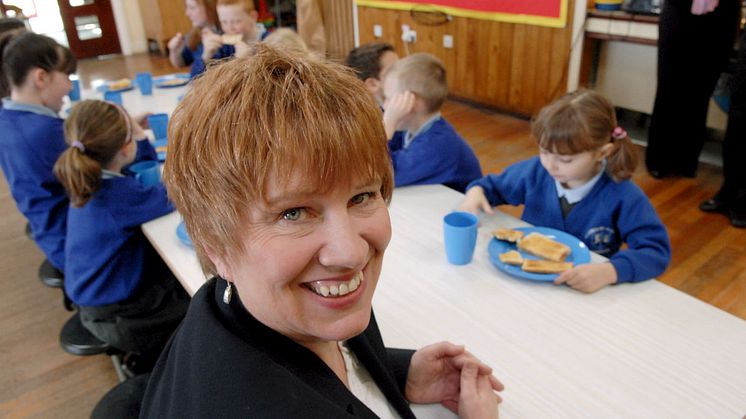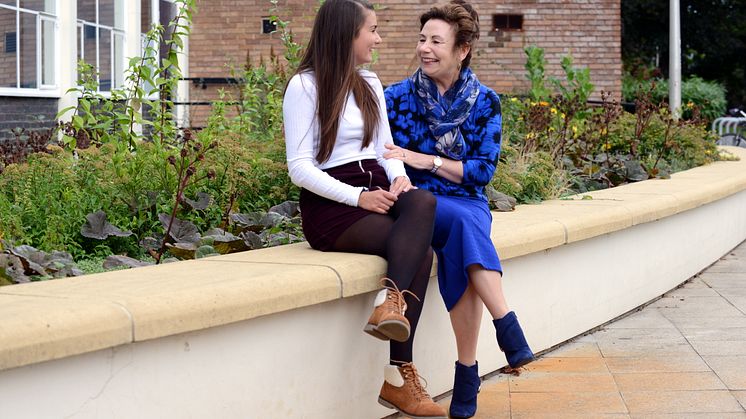Press release -
EXPERT COMMENT: Does a free place at an independent school really trump going to a state school?
Michael Jopling, Professor in Education at Northumbria University, writes about diversity within the private education sector in the United Kingdom.
In her first statement as prime minister in July 2016, Theresa May said that “if you’re at a state school, you’re less likely to reach the top professions than if you’re educated privately”. Such claims have often prompted calls for access to independent schools to be made easier for low-income students. However, questions remain about whether programmes to widen access reach the students targeted or produce the desired outcomes for them.
On December 9, in response to recent government demands that independent schools strengthen their connections with state schools to maintain their charitable status, the Independent Schools Council (ISC) announced a proposal to create up to 10,000 free placesin independent schools every year for low-income families. These places would be jointly funded by independent schools and government.
Rather than adopting the prime minister’s requirement that independent schools create or sponsor new state schools, the ISC is effectively reviving and expanding the Assisted Places scheme. This offered around 75,000 free places at independent schools to students between 1981 to 1997 before the incoming New Labour government abolished it and used the funding to reduce class sizes in state primary schools.
Assisted places
A 1998 study looking at the impact of the Assisted Places scheme suggested that it did not increase diversity in the system or enhance opportunities for the target group of working-class and inner-city children. Instead, it may have simply reinforced elitist tendencies within the English education system. A survey of former assisted place-holders in adulthood also found that while they regarded themselves as “successful” in terms of their education and careers, they attributed this to ability and hard work, rather than the schools themselves. Around half of them had sent their own children to private schools, perpetuating the elitism noted in the earlier study.
But beyond whether assisted places in independent schools actually help targeted students, are independent schools actually better than state schools? While many studies have attempted to explore whether independent schools are superior in terms of student attainment at school and beyond, they tend to have been small in scale or focused on a particular part of the school system. Research undertaken for the ICS in 2016 took a broader view, looking at students from the age of four and found a difference in GCSE grades between independent and state schools, which they associated with the equivalent of two additional years schooling by the age of 16 for independent school students.
However, the study was also clear that unidentified external factors could have affected their findings. It seems likely that the development of “soft” skills, such as influencing and networking, often associated with independent school students and likely to derive from experiences and connections outside of school, may also give them an edge.
And despite their profile and subsequent success, only 7% of the total student population attend independent schools, which makes it difficult to compare their outcomes with the much larger group of state-school students. Research published in 2015 by the Higher Education Funding Council for England initially found that more state-school students achieved a first or upper second class degree than independent school students, until it was revealed that they had got their figures the wrong way round. It was not revealed where the perpetrators of the error in HEFCE had gone to school.
One of the main problems is that the independent vs state school issue casts such a long shadow that proponents of either side of the divide tend to seize on whatever evidence they can as a vindication of their view.
The more important point is that, regardless of how far you accept the available evidence of independent schools’ superiority in terms of student achievement or career success, ICS’s new proposal would only involve a relatively small number of young people. At the same time, it runs the risk of entrenching existing divides and, alongside the revival of grammar schools, increasing selection. Evidence from the Organisation for Economic Cooperation and Development suggests thatincreasing selection does not improve the performance of school systems overall. This means that the ICS proposal may benefit the few that are able to access it, but is likely to have a much greater negative effect on the many that do not.
This article was originally published in The Conversation. Read the original article.
Topics
Categories
Northumbria is a research-rich, business-focused, professional university with a global reputation for academic excellence. To find out more about our courses go to www.northumbria.ac.uk
If you have a media enquiry please contact our Media and Communications team at media.communications@northumbria.ac.uk or call 0191 227 4571.













